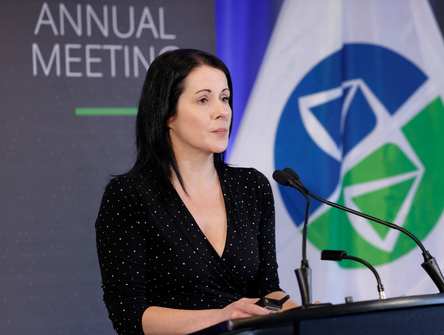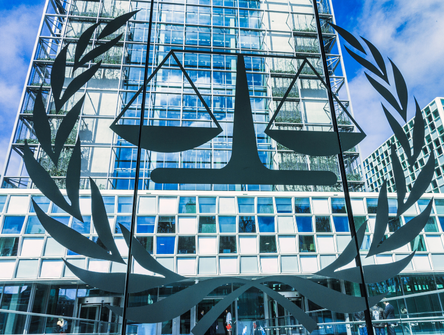Most read articles of 2019
Our most-read stories of the year reflect a diverse range.

It can be telling what the most popular articles of the year are for a publication. At the risk of reading too much into these lists, they do reveal something about the range of concerns that influence the professional lives of both our contributors and our readers.
Why legal advice is so expensive
By Addison Cameron-Huff
The legal system in Canada is complicated, arcane, and out of reach for the majority of people. One important reason for that is that the cost of getting answers to legal questions is generally very high.
Lawyers are expensive relative to other professionals. While it is tempting to blame high rates on self-interested lawyers, there are structural considerations that we need to acknowledge if we are ever to address our access to justice crisis meaningfully.
Why won’t Canadian employers hire more internationally trained law graduates?
By Tiffany Sillanpää
For reasons not fully understood, employers are reluctant to hire graduates from abroad — even Canadian ones— and this is hindering their ability to develop a diverse and highly skilled team that connects with their multicultural and cross-jurisdictional clients.
Family justice in Canada is at a breaking point
By John-Paul Boyd
Deep structural problems persist in how our justice system handles family disputes. We need to think seriously about a complete overhaul.
Canada’s prisons are failing
By Justin Ling
Deteriorating conditions are at a crisis point. It will take something radical to get the government to act.
Vicarious trauma in the legal profession
By Carolynne Burkholder-James
Myrna McCallum never learned about vicarious trauma in law school.
"It was only after I became a Crown prosecutor and even more after I became an adjudicator in residential school claims that I began to be introduced to the concept of trauma – not just how it shows up in clients or in witnesses, but how it was showing up in me. It really took going to a psychologist for me to become aware that I was experiencing vicarious trauma."
How do we eliminate the cannabis black market? License it.
By Russell Bennett
Given a choice, Canadians prefer to buy illicit weed. In fact, nearly 80 per cent of all sales since legalization are from the “black market” – or more aptly named the “original market.”
This is not to say that Canada should not be proud to be the first G20 nation to stop throwing people in jail for possessing small amounts of weed. But let’s be honest, the federal government’s objective to eliminate the original industry is misguided. Instead, it should eliminate the fake distinction between legal and illegal cannabis.
Canada’s growing student debt crisis
By Holly Lake
Debt loads are becoming an enduring burden for Canadian law graduates, and that is distorting the profession’s ability to serve the public.
The hard truth about legal aid
By Dale Smith
Access to legal services is an issue that affects a great number of Canadians, as everyone is likely to experience a legal problem at some point in their lives. When not addressed properly, that problem can often spiral out of control and spread to other areas of our lives – particularly for more marginalized people. And yet, legal aid funding is hardly ever brought up as an election issue—as the last federal campaign demonstrated.
Could it be that Canadians don't care enough about people whose lives are upended by their legal problems?
Why “genocide” was used in the MMIWG report
Interview by Yves Faguy
The Missing and Murdered Indigenous Women and Girls inquiry report made the case Canada has carried out a “genocide” against Indigenous people under international law. Though the Trudeau government accepts the findings of the report, and has promised action, there has been strong public reactions to the use of the term. CBA National interviewed Fannie Lafontaine, who co-authored the legal analysis of the National Inquiry. Lafontaine is the Canada Research Chair on International Criminal Justice and Human Rights, and is based out of Université Laval.
The law of remediation agreements: Why it needs to be rewritten
By Doug Beazley
The SNC-Lavalin affair is a story about a lot of things: the rules of parliamentary democracy, the relationship between a prime minister and a government caucus, a grisly collision between high-flying moral rhetoric and the ‘sausage-making’ aspects of politics.
It’s also a story about a law — a new law, still untested. Canada’s law permitting deferred prosecution agreements (DPAs, or “remediation agreements,” to use the wording in the Criminal Code) is less than a year old — so maybe it’s not that strange that not everyone agrees on what it does and doesn’t do.
Quebec’s secularism bill violates Canada’s “equal rights amendment”
By Samer A. Alam and Kerri A. Froc
Bill 21 targets Muslim women, and that means they can use the Charter to challenge it, notwithstanding the override clause.
A Jordan rule for minors?
By Doug Beazley
The top court could impose a lower ceiling for youth trials.


